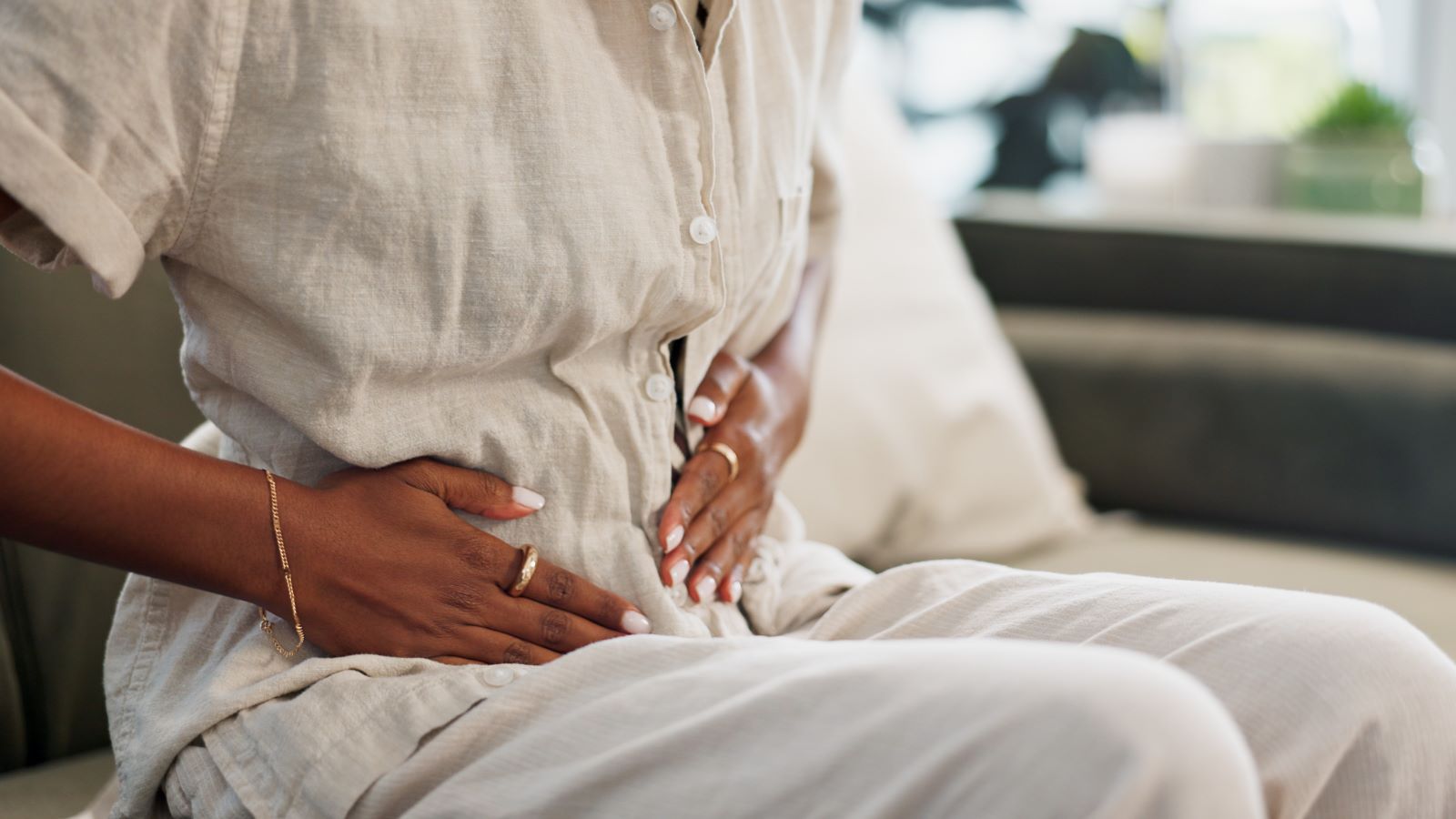<< Back
3 Reasons Why You’re Bloated After Eating

May 17, 2024
No one likes feeling bloated after eating. And if it’s happening often, you may be wondering what’s causing the feeling.
We asked Amanda Ayers, MD, a colon and rectal surgeon with the Hartford HealthCare Digestive Health Institute, to explain some common causes of bloating and how to remedy them.
But first, what is bloating?
“This term can mean different things for different people,” answers Dr. Ayers.
Bloating can be:
- Increased pressure in the abdomen, particularly after eating.
- Water retention from hormonal changes or overeating salt.
In either case, it can be uncomfortable. And the cause may be in Dr. Ayers’ top three common reasons.
1. Your eating habits
Do any of these behaviors sound familiar?
- Eating too quickly
- Drinking carbonated beverages
- Gum chewing
If you’re swallowing extra air, it can show up as bloating.
> Related: 6 Healthy Sources of Fat to Add to Your Diet
2. Your food
Some snacks and drinks may contribute to bloating, including:
- Fatty foods.
- Carbonated beverages, including beer.
- Dairy: People can lose the ability to digest lactose over time.
- Beans and lentils: During digestion, these break down into a sugar called oligosaccharides that can ferment and create gas in the GI tract. It helps to soak these first.
- Cruciferous vegetables: Broccoli, cauliflower and Brussels sprouts can all cause bloating.
- Onions and garlic: These create a bloat-inducing sugar (fructan).
As a pro tip, Dr. Ayers recommends cooking those veggies, onions and garlic to help prevent bloating.
3. Your health condition
You may also have a health condition that leads to bloating, including:
- Food intolerances
- GI motility problems and constipation
- Intestinal disorder
- Irritable bowel syndrome (IBS)
- Small intestinal bacterial overgrowth (SIBO)
- Gastroparesis
There are also other potential issues you should discuss with your doctor:
- Gynecologic cancer.
- Pelvic floor problems can lead to constipation, poor evacuation and bloating.
- The development of ascites (fluid in the belly) needs immediate medical attention.
> Want more health news? Text StartHere to 85209 to sign up for text alerts
Having trouble pinpointing the culprit? Try a food diary.
If you’re unsure what’s actually causing your bloating, a food diary can help narrow down the issues.
“Identifying possible causes is key to better understanding why you’re bloated,” says Dr. Ayers. “Pay attention to what, how often and how quickly you eat.”
This food diary can help you find the triggers or sneaky culprits.
If you’re still stumped, you can try eliminating possible trigger foods from your diet with guidance from your doctor.
Drop the bloat in 5 steps
If you’re dealing with occasional bloating, try these simple steps to get rid of bloating:
- Eat slower
- Add fiber to your diet, ideally 25-35 grams per day.
- Drink plenty of water, around 64 ounces daily.
- Avoid processed foods and artificial sweeteners.
- Try peppermint oil or herbal teas to help with digestion.
“And don’t forget about regular exercise,” adds Dr. Ayers. “Even a short walk several times a day can help reduce bloating!”
When to see a doctor
While some bloating is normal, Dr. Ayers urges you to pay attention to signs something isn’t right.
“If bloating gets worse, lasts without relief or you can’t eat or drink, call your doctor,” she says.
If you’re experiencing an abrupt change in bowel habits or you have other systemic signs like fever, weight loss, vomiting or rectal bleeding, see your provider right away.